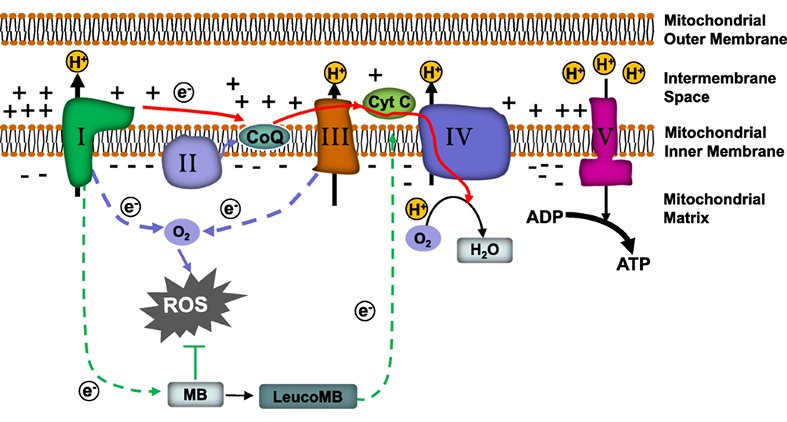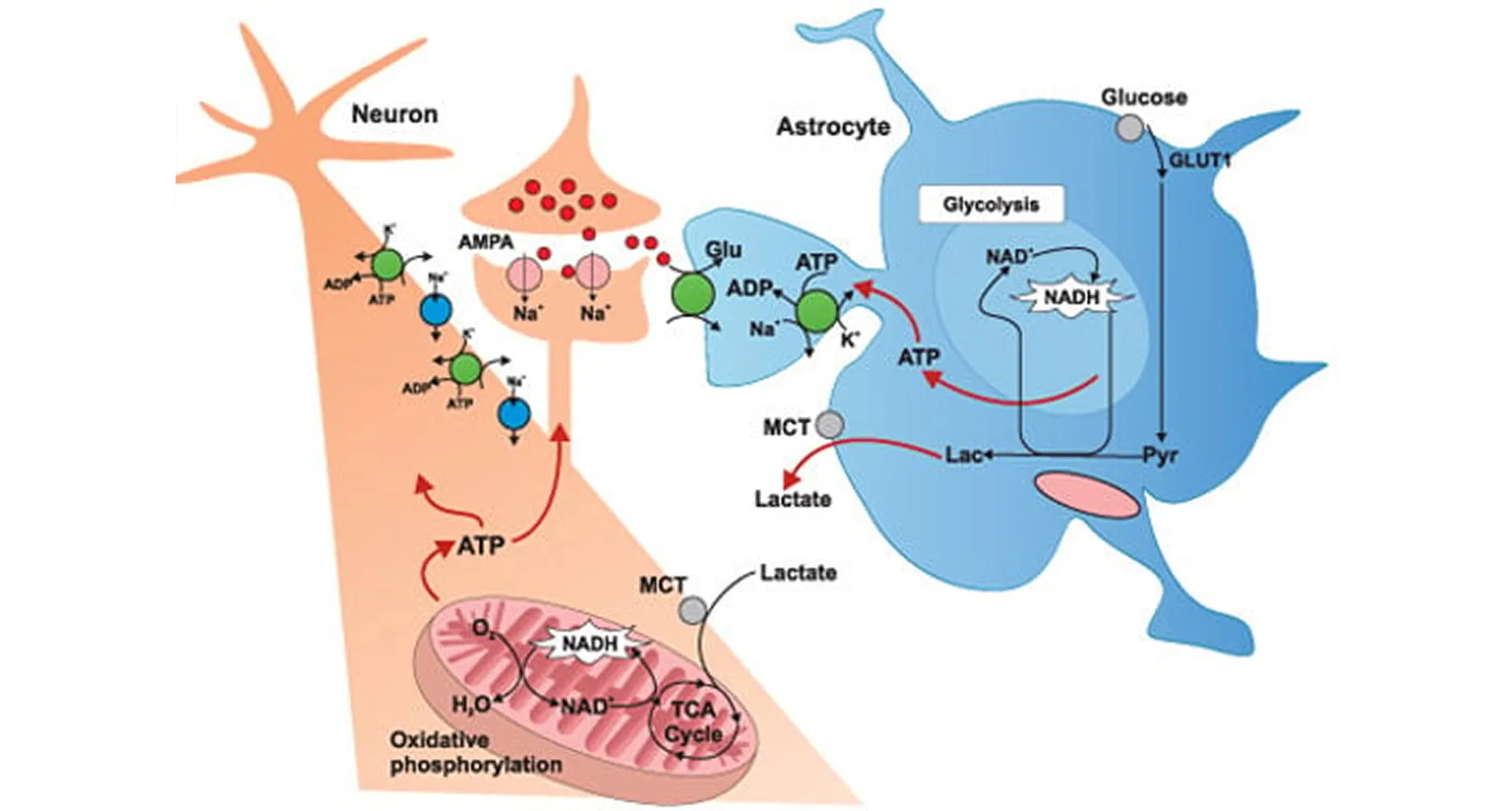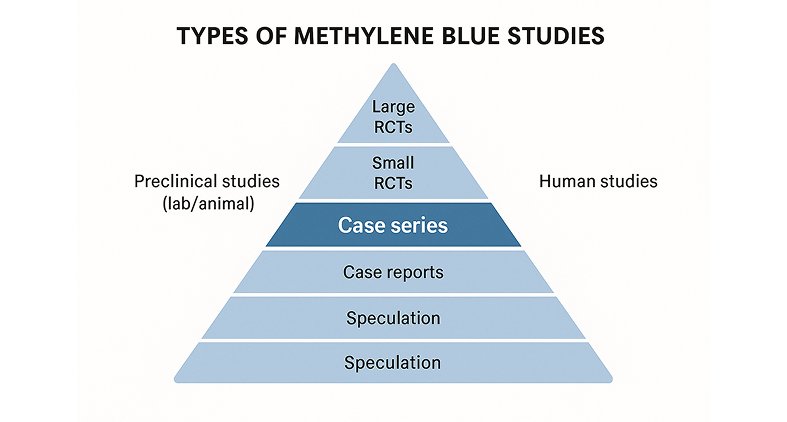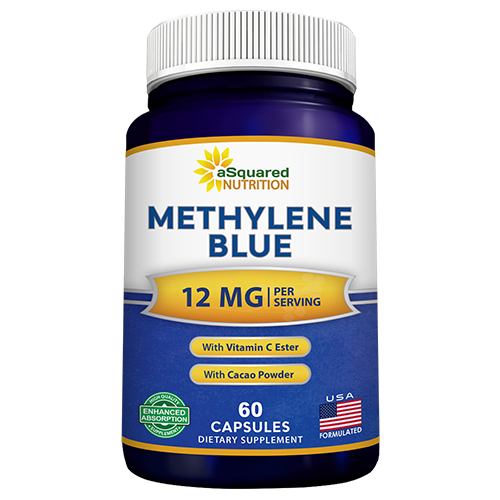Does Methylene Blue Boost Energy & Cognition? A Balanced Review of the Research
By Supplement Reports Team
July 26, 2025
6 min read



A Balanced Look at the Evidence

Mechanisms Relevant to Energy & Cognition

Mitochondrial research showing neuroprotective mechanisms
Key Mechanisms
Electron Transport Enhancement: Acts as a bypass in the mitochondrial electron transport chain
ATP Production: Increases cellular energy currency production
Antioxidant Activity: Neutralizes harmful reactive oxygen species
Neuroprotection: Protects brain cells from oxidative damage
What Lab & Animal Studies Show

Brain energy metabolism pathways
Important Limitation
Human Data Review

Current evidence hierarchy for methylene blue research
Promising Findings
- Improved memory retrieval in healthy volunteers
- Enhanced attention and focus in small studies
- Potential cognitive support effects in research
- Increased brain metabolism in imaging studies
Study Limitations
- Small sample sizes (typically 10-50 participants)
- Short-term studies (single dose or few weeks)
- Limited diversity in study populations
- Need for larger, longer-term trials
One study published in the journal Brain Imaging and Behavior found that a single low dose of methylene blue improved memory retrieval in healthy volunteers. Another small study suggested that methylene blue may have cognitive support effects in research participants. While these findings are encouraging, the studies are small, and more research is needed to confirm these effects.
Acute vs. Longer-Term Use
Most of the human studies on methylene blue have looked at the effects of a single, acute dose. The long-term effects of methylene blue supplementation are not yet well understood. It’s also important to consider the placebo effect, which can be significant in studies of cognitive enhancement.
Research Gaps
Acute Effects: Most studies focus on single-dose effects, typically measured within hours
Chronic Use: Long-term safety and efficacy data is largely missing
Optimal Dosing: Dose-response relationships are not well established
Who Might (and Might Not) Notice Effects
The effects of methylene blue can vary significantly from person to person. Factors that may influence your response to methylene blue include your baseline health, your genetics, and your current supplement and medication stack.
More Likely to Respond
- Individuals with suboptimal mitochondrial function
- Those with high oxidative stress
- People interested in cognitive support research
- Individuals with energy metabolism variations
Less Likely to Respond
- Young, healthy individuals with optimal function
- Those already taking multiple nootropics
- People with certain genetic variations
- Individuals on conflicting medications
How to Read MB Studies Like a Pro
When evaluating the research on methylene blue, it’s important to be a critical consumer of information. Here are the key factors to consider:
Sample Size
How many participants were in the study? Larger studies (n>100) are generally more reliable than small pilot studies (n<20).
Controls
Did the study include a placebo control group? Randomized, double-blind, placebo-controlled trials are the gold standard.
Research Gaps
What did the study measure? Look for studies that use objective, validated measures of cognition rather than subjective self-reports.
Dosing
What dose was used? The dose can significantly impact effects, and optimal dosing is still being determined.
Conflicts of Interest
Who funded the study? Be cautious of studies funded by companies that sell methylene blue supplements.
Setting Realistic Expectations
What the Science Currently Supports
Mitochondrial Support
Strong preclinical evidence for mitochondrial enhancement
Cognitive Enhancement
Long-term Safety
Practical Takeaways
Bottom Line
The research on methylene blue for energy and cognition is still in its early stages, but the results are promising. While there is not yet enough evidence to make blanket claims about its effectiveness, the existing studies suggest that it may have benefits for some individuals.
If you are considering trying methylene blue, it’s important to work with a healthcare professional to determine the right dose and to monitor for any potential side effects. Approach it as an experimental intervention rather than a proven treatment, and maintain realistic expectations about potential benefits.
Research-Based Recommendations
Start with the lowest effective dose and monitor response
Keep detailed logs of cognitive and energy changes
Consider your individual risk factors and health status
Stay informed about emerging research and safety data
Work with knowledgeable healthcare providers
Top Rated Methylene Blue Supplement
Methylene Blue Capsules (12mg)
9.8

(70 reviews)
- Supports brain energy, clarity, and mitochondrial health
- Enhanced with Cacao, Alpha Lipoic Acid, and MCT Oil Powder
- 12mg pharmaceutical-grade Methylene Blue per serving
- Natural ingredients, non-GMO, third-party tested
- Made in GMP facility for quality assurance
Show more
- Supports brain energy, clarity, and mitochondrial health
- Enhanced with Cacao, Alpha Lipoic Acid, and MCT Oil Powder
- 12mg pharmaceutical-grade Methylene Blue per serving
- Natural ingredients, non-GMO, third-party tested
- Made in GMP facility for quality assurance
Picked by ... people today
